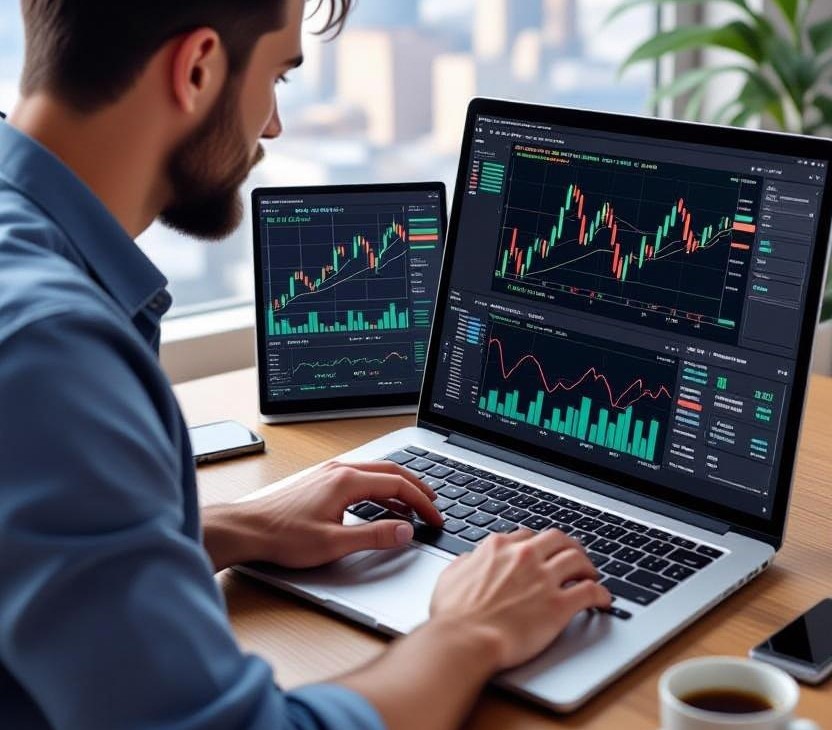Arbitrage Crypto Scanners and the New Financial Landscape: Balancing Innovation and Oversight
- Brennan Norman
- 0 comment
- September 26, 2025

More than $100 billion flows through cryptocurrency exchanges every day, creating small gaps in prices that can vanish in seconds. These gaps, known as arbitrage opportunities, are no longer the exclusive domain of seasoned traders with lightning-fast spreadsheets. A new wave of tools has emerged to automate the hunt, making crypto arbitrage accessible to a wider audience and reshaping how digital markets work.
Among these tools, the arbitrage crypto scanner has become a game changer. It tracks hundreds of exchanges in real time, alerting users when a price difference is big enough to act on. While this sounds like a golden ticket, it also draws the attention of regulators and politicians who worry about fairness, manipulation, and financial stability. This duality, innovation on one side and oversight on the other, defines the current moment in cryptocurrency trading.
How Arbitrage Scanners Boost Market Efficiency
Price gaps between exchanges are natural, especially in a market that never sleeps. When a trader spots these gaps and moves quickly, they earn a profit while also pushing prices back into balance. This creates a more efficient market for everyone. Arbitrage scanners speed up this process by crunching the numbers automatically, reducing human error and allowing even small players to compete with larger firms.
Efficiency has its benefits beyond profit. It helps reduce volatility, smooths out price swings, and fosters trust in the crypto ecosystem. For newcomers, it removes some of the mystery around trading. For experienced investors, it offers a way to diversify strategies without being glued to multiple screens all day.
The Political Debate Around Regulation
Governments across the world are still deciding how to regulate cryptocurrency trading. Some see arbitrage as a legitimate way to keep markets honest, while others fear it could be used to launder money or manipulate prices. In the United States, for example, members of Congress have called for stricter reporting requirements on high-frequency traders. In Europe, new rules under the Markets in Crypto-Assets (MiCA) framework will soon demand more transparency from platforms and traders alike.
The heart of the debate lies in balance. How can regulators protect investors without stifling innovation? Arbitrage scanners highlight this tension. They embody the promise of technology but also test the limits of existing laws. The outcome of this debate will shape how accessible and profitable crypto arbitrage remains in the future.
Operating Within the Law
Using tools like an arbitrage crypto scanner does not automatically mean breaking the law. However, traders must be mindful of compliance. This means understanding tax rules in their country, following anti-money laundering (AML) requirements, and keeping detailed records of every transaction. It also means choosing reputable exchanges with clear policies and reliable withdrawal systems.
Here are simple tips to stay compliant while trading:
- Register with exchanges that have strong security and regulatory credentials.
- Keep transparent records of trades for tax purposes.
- Understand withdrawal limits and fees before moving funds.
- Stay updated on new regulations in your region.
Risks and Responsibilities
“An algorithm can find the door, but you still have to walk through it.”
Arbitrage opportunities may seem like free money, but they carry risks. Transfer delays, sudden price changes, or frozen accounts can turn profits into losses. Scanners make the process faster but not risk-free. Users must still act wisely, test strategies with small amounts first, and avoid overleveraging.
Scanners are a tool, not a guarantee. They can highlight opportunities, but decision-making remains in the hands of the user. As one experienced trader said, “An algorithm can find the door, but you still have to walk through it.” This mindset helps protect against reckless moves and keeps trading sustainable.
The Future of Crypto Arbitrage
The next few years will define how arbitrage fits into the broader financial system. As institutional money flows into crypto, competition for price gaps will intensify. Scanners will likely become smarter, integrating artificial intelligence to predict opportunities before they appear. At the same time, regulatory bodies will refine their approach, setting clearer rules for automated trading.
For everyday traders, this future offers both promise and caution. Innovation opens doors, but oversight will determine how wide those doors stay open. Those who learn the rules, use reputable tools, and respect the limits of the system will be best positioned to benefit.
READ ALSO: The Promise of Cryptocurrency – Freedom, Democracy, Equality
Conclusion
Arbitrage scanners have already transformed how digital assets are traded. They bring speed, clarity, and a sense of fairness to a market once dominated by insiders. Yet they also invite new scrutiny from governments and watchdogs. By understanding the risks, respecting regulations, and choosing tools like an arbitrage crypto scanner responsibly, users can navigate this new financial landscape with confidence and integrity.




